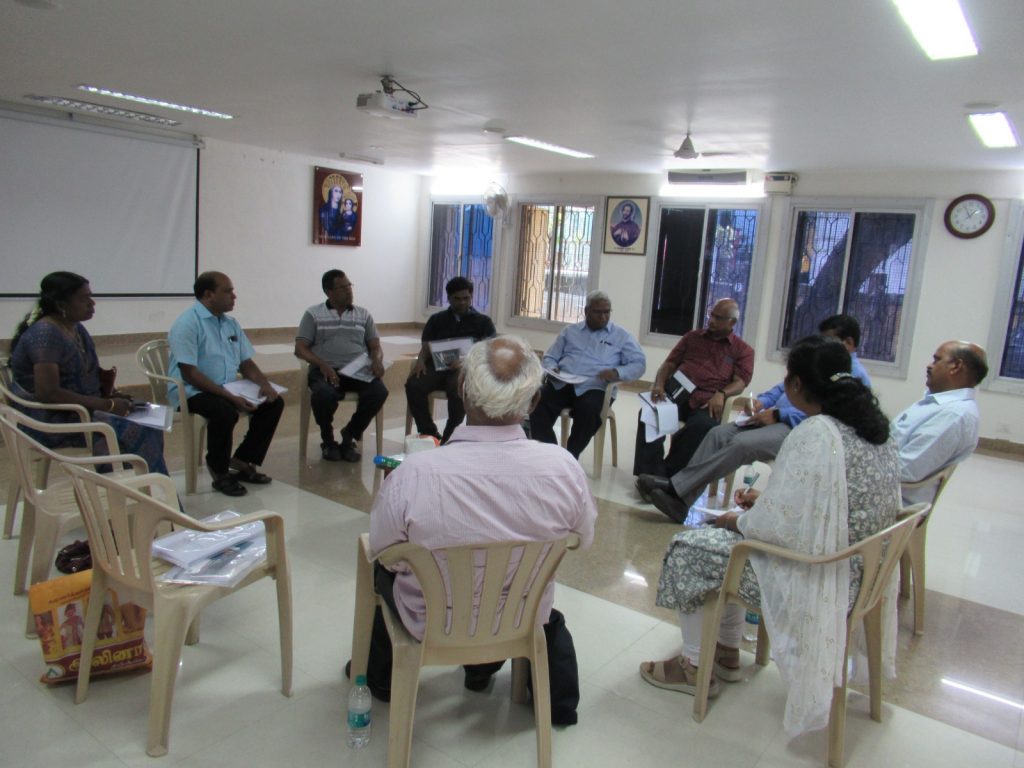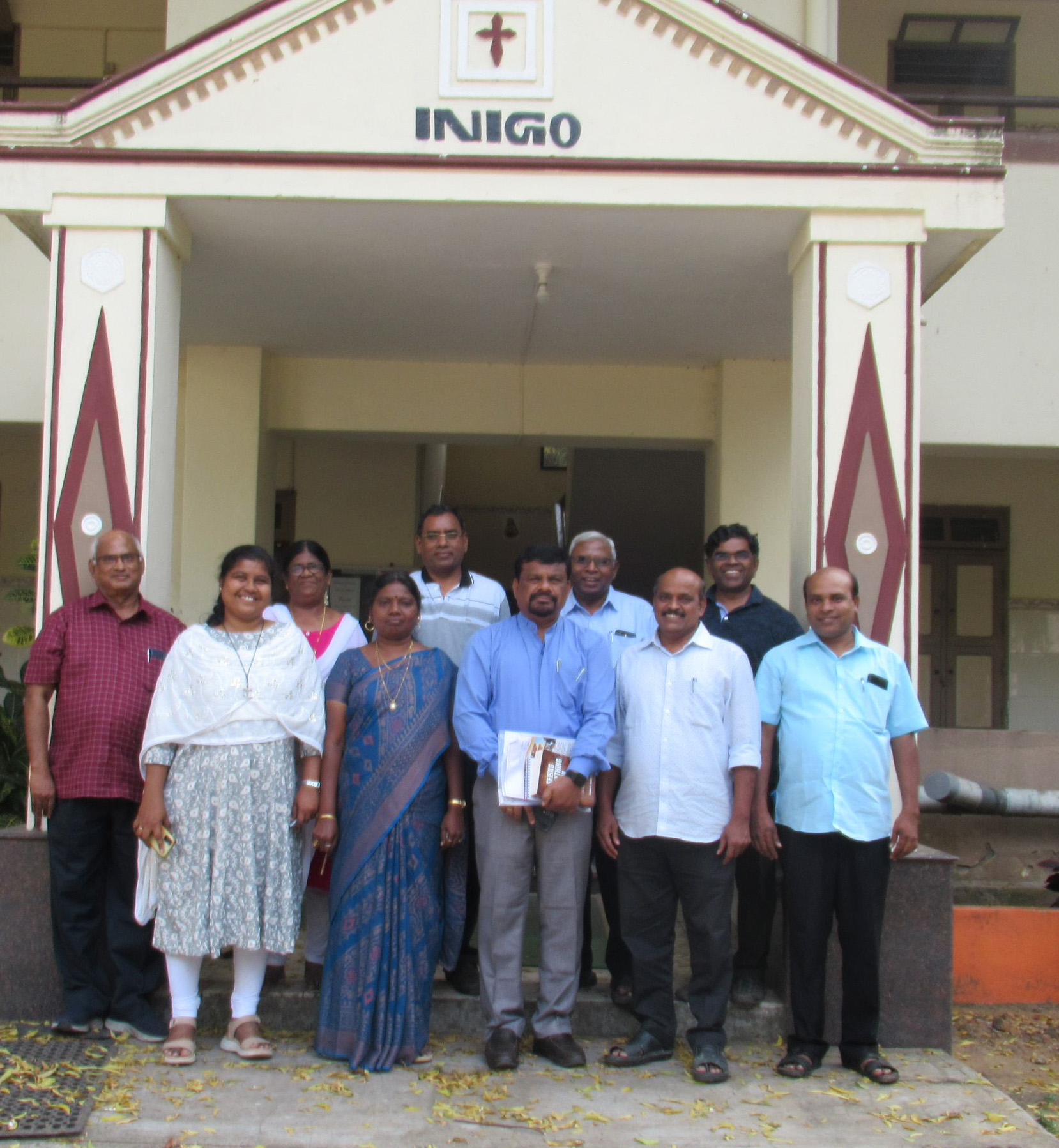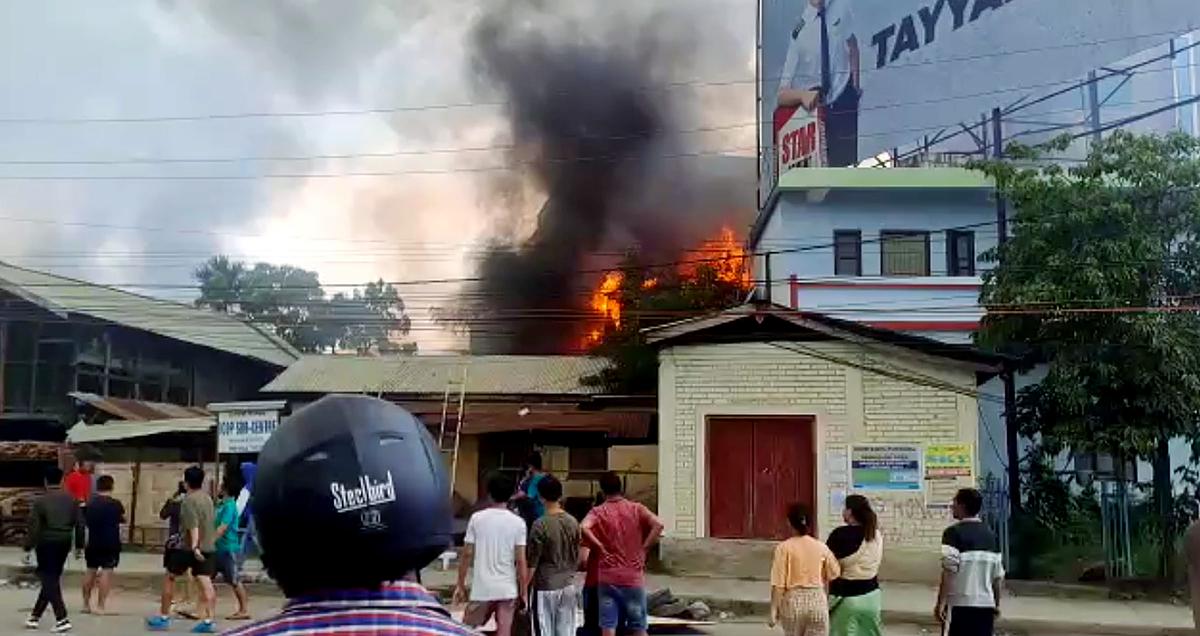By DCD Reporter
January 30, 2023, Chennai: Tamil Nadu Bishops’ Council (NDBC) organized a consultation to disseminate and implement the Dalit Empowerment Policy on January 30 at Dyana Ashram in Chennai.
“The Policy of Dalit Empowerment in the Catholic Church in India: An Ethical Imperative to Build Inclusive Communities” was released on December 13, 2016, by Baselios Cardinal Cleemis, then president of the Catholic Bishops’ Conference of India (CBCI).
The purpose of the meeting was to disseminate and implement the Dalit Empowerment Policy at the regional level and to network with other Dalit movements, says Father Kulandainathan, regional secretary to the Tamil Nadu Bishops’ Council, Commission for Scheduled Castes and Scheduled Tribes (TNBC Commission for SC/ST).
Father Vijoy Kumar Nayak, the national secretary of the CBCI Office for Scheduled Castes (SC) and Backward Classes (BC), was invited for the regional consultation.
Briefing about the Supreme Court case on Scheduled Caste status for Dalit Christians and Dalit Muslims, he said that getting the support of the Dalit leaders from other states will help strengthen the case.

From 1992 to 2022, the CBCI issued 18 statements in favor of Dalit Christians in India. The Dalit Empowerment Policy was also in favor of all the bishops in India, but even after six years of its release, it has neither been disseminated nor implemented.
For the dissemination of the policy, it needs to start with the diocesan clergy and the Conference of Religious India (CRI). The Dalit Empowerment Policy in Tamil was released in 2017 by the SC/ST Commission, and the Archdiocese of Madurai and Kumbakonam Diocese reprinted the same in 2018.
Several seminars and workshops were conducted at the regional and national levels. Some dioceses, like Chingleput and Kumbakonam, took the initiative to implement the policy in education and appointments.
The CBCI Dalit Policy was released in jubilation, but as time went by, it was met with rejection, indifference, and cynicism.
“We live in a socially caste-ridden society. We need to be more proactive, and futuristic, especially aggressively creative,” bemoans Jesuit Father Maria Arul Raja, the well-known international theologian.
Ideologically, the gospel is against casteism and all forms of discrimination, subjugation, and exploitation. The church cannot be caste-ridden, as it goes against the spirit of the gospel and the teachings of Jesus, he said, adding, “Removal of casteism is our major mission.”
“There are token, elite, reactive Dalits who are elevating themselves and blaming other Dalits and will not join hands with us,” the Jesuit priest said. “We need to win many friends, as we are not sectarians. We look for the companionship of pro-Dalits and non-Dalits. This particular conviction must be spread.”
“The evil needs to be diagnosed and addressed at large; antidote it and sustain it. We need to pressurize the government to conduct a caste-based census and to join with like-minded people,” Raja said.
He also stressed the need to encourage the quality production of literature to empower Dalit Christians with quality and higher education, employment, and character formation. Provide leadership training, and encourage people to work in media, law, theology of feminism, and all other professions.
Awareness about the Dalit Policy will be spread through social media postings, biographies of the Dalit leaders, and annual programs at the parish, zonal, vicariate, regional, and national levels.
Father Devasagayaraj, the former national secretary of the CBCI Office for SC and BC, insisted on initiating a baseline survey again as it was attempted earlier. With the coordination of the diocesan secretaries and CRI, the regional commission can disseminate the Dalit Empowerment Policy.
The following suggestions came out of the meeting:
* To come up with success stories of Dalits
* To expand the network with other like-minded people who are interested in the empowerment of the Dalits
* To have meetings at the national and international level to disseminate the Dalit Empowerment Policy and the Dalit Rite.
* To network with the Dalit movements
* To organize national and regional seminars on various topics and issues of national importance
* The Diocesan Pastoral Council can carry the message to the vicariate level.
* Seminars for people who are interested in Dalit leadership and empowerment.
* To work on concrete, practical, and time-bound actions.
* To have a policy on missions and appointments
* To have a week-long course on Dalit theology in the seminaries and the formation houses.
* To have the statistics of the Dalit priests and the nuns, besides other professions
Father Kulandainathan has agreed to conduct the baseline survey in the dioceses, the CRI, and a seminar for the pro-Dalits and the members of the Diocesan Pastoral Council on Dalit Policy.
He has also agreed to send a letter to the regional theologians in Tamil Nadu to conduct a course on Dalit theology.
Fr. Vijoy Kumar Nayak would call for a national-level meeting to implement the Dalit Empowerment Policy.
Father Selvaraj Arulnathan, the former director of the Indian Social Institute (ISI), Bangalore, moderated the consultation.
Participants who joined the consultation were Fr. Lourdhuswamy S, former national secretary, CBCI Office for SC/BC, Fr. Devasagayaraj Zackarias, former national secretary, CBCI Office for SC/BC Fr. Vijoy Kumar Nayak, national secretary, CBCI Office for SC/BC, Fr. Francis Xavier, Rector, Loyola College, Chennai, Fr. Maria Arul Raja, director, Institute of Dialogue with Cultures and Religions (IDCR), Loyola College, Chennai; Fr. Selvaraj Arulnathan, former executive director, ISI, Bangalore, Fr. Soosai Mani, former provincial of OSM, Ms. Jesindha, admin coordinator, TNBC Commission for SC/ST, Ms. Geetha Sagayarani, accountant, TNBC Commission for SC/ST, Sr. Robancy A Helen, former program coordinator, CBCI Office for SC/BC.
Fr. Kulandainathan, regional secretary of the TNBC Commission for SC/ST organized the meeting.










